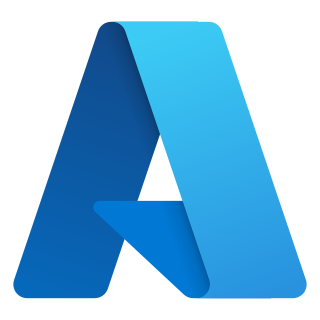
SAP Business One is an enterprise resource planning (ERP) application designed for small and medium-sized enterprises, and marketed by the German company SAP SE. Its goal is the automation of key business functions in finance, operations, and human resources.
PowerBuilder is an integrated development environment owned by SAP since the acquisition of Sybase in 2010. On July 5, 2016, SAP and Appeon entered into an agreement whereby Appeon, an independent company, would be responsible for developing, selling, and supporting PowerBuilder.
Microsoft UI Automation (UIA) is an application programming interface (API) that allows one to access, identify, and manipulate the user interface (UI) elements of another application.
Heroku is a cloud platform as a service (PaaS) supporting several programming languages. As one of the first cloud platforms, Heroku has been in development since June 2007, when it supported only the Ruby programming language, but now also supports Java, Node.js, Scala, Clojure, Python, PHP, and Go. For this reason, Heroku is said to be a polyglot platform as it has features for a developer to build, run and scale applications in a similar manner across most of these languages. Heroku was acquired by Salesforce in 2010 for $212 million.

Samsung SDS Co., Ltd., Established in 1985 as a subsidiary of Samsung Group, is a provider of Information Technology (IT) services, including consulting, technical, and outsourcing services. SDS is also active in research and development of emerging IT technologies such as Artificial Intelligence (AI), Blockchain, Internet of Things (IoT) and outsourcing in engineering. In 2019, Samsung SDS reported a net profit of 750.4 billion won, an increase of 17.5% year-on-year. The company is estimated to have the 11th most valuable brand among global IT service companies, at US$3.7 billion as of January 2020. Samsung SDS has headquarters in South Korea and eight other overseas subsidiaries, one in America, Asia-Pacific, China, Europe, Latin America, Middle East, India, and Vietnam.

Microsoft Azure, or just Azure, is the cloud computing platform developed by Microsoft. It offers management, access and development of applications and services to individuals, companies, and governments through its global infrastructure. It also provides a range of capabilities, including software as a service (SaaS), platform as a service (PaaS), and infrastructure as a service (IaaS). Microsoft Azure supports many programming languages, tools, and frameworks, including Microsoft-specific and third-party software and systems.

RhoMobile Suite, based on the Rhodes open source framework, is a set of development tools for creating data-centric, cross-platform, native mobile consumer and enterprise applications. It allows developers to build native mobile apps using web technologies, such as CSS3, HTML5, JavaScript and Ruby. Developers can deploy RhoMobile Suite to write an app once and run it on the most-used operating systems, including iOS, Android, Windows Phone, Windows Mobile, Windows CE, Windows 10 Mobile and Windows Desktop. Developers control how apps behave on different devices. RhoMobile Suite consists of a set of tools for building, testing, debugging, integrating, deploying and managing consumer and enterprise apps. It consists of the products Rhodes, RhoElements, RhoStudio, RhoConnect, and RhoGallery, and includes a built-in Model View Controller pattern, an Object Relational Mapper for data intensive apps, integrated data synchronization, and a broad API set. These mobile development services are offered in the cloud and include hosted build, synchronization and application management.

Cloud Foundry is an open source, multi-cloud application platform as a service (PaaS) governed by the Cloud Foundry Foundation, a 501(c)(6) organization.
MuleSoft, LLC. is a software company headquartered in San Francisco, California, that provides integration software for connecting applications, data and devices, founded in 2006. The company's Anypoint Platform of integration products is designed to integrate software as a service (SaaS), on-premises software, legacy systems and other platforms.
Backend as a service (BaaS), sometimes also referred to as mobile backend as a service (MBaaS), is a service for providing web app and mobile app developers with a way to easily build a backend to their frontend applications. Features available include user management, push notifications, and integration with social networking services. These services are provided via the use of custom software development kits (SDKs) and application programming interfaces (APIs). BaaS is a relatively recent development in cloud computing, with most BaaS startups dating from 2011 or later. Some of the most popular service providers are AWS Amplify and Firebase.
DataStax, Inc. is a real-time data for AI company based in Santa Clara, California. Its product Astra DB is a cloud database-as-a-service based on Apache Cassandra. DataStax also offers DataStax Enterprise (DSE), an on-premises database built on Apache Cassandra, and Astra Streaming, a messaging and event streaming cloud service based on Apache Pulsar. As of June 2022, the company has roughly 800 customers distributed in over 50 countries.

Datadog, Inc. is an American company that provides an observability service for cloud-scale applications, providing monitoring of servers, databases, tools, and services, through a SaaS-based data analytics platform. Founded and headquartered in New York City, the company is a publicly traded entity on the Nasdaq stock exchange. The mascot is a dog named Bits.

SAP HANA is an in-memory, column-oriented, relational database management system developed and marketed by SAP SE. Its primary function as the software running a database server is to store and retrieve data as requested by the applications. In addition, it performs advanced analytics and includes extract, transform, load (ETL) capabilities as well as an application server.
Firebase was a company that developed backend software. It was founded in San Francisco in 2011 and was incorporated in Delaware.
Wercker is a Docker-based continuous delivery platform that helps software developers build and deploy their applications and microservices. Using its command-line interface, developers can create Docker containers on their desktop, automate their build and deploy processes, testing them on their desktop, and then deploy them to various cloud platforms, ranging from Heroku to AWS and Rackspace. The command-line interface to Wercker has been open-sourced.

Tricentis is a software testing company founded in 2007 and headquartered in Austin, Texas. It provides software testing automation and software quality assurance products for enterprise software.
SAP Cloud Platform has been rebranded as SAP Business Technology Platform (BTP).

Oracle Cloud is a cloud computing service offered by Oracle Corporation providing servers, storage, network, applications and services through a global network of Oracle Corporation managed data centers. The company allows these services to be provisioned on demand over the Internet.

UiPath Inc. is a global software company that makes robotic process automation (RPA) software. It was founded in Bucharest, Romania, by Daniel Dines and Marius Tîrcă. Its headquarters are in New York City. The company's software monitors user activity to automate repetitive front and back office tasks, including those performed using other business software such as customer relationship management or enterprise resource planning (ERP) software.
Azuqua is an American cloud-based integration and automation company headquartered in Seattle, Washington. As such, they integrate SaaS applications and create automations that are designed to eliminate manual work. Azuqua's platform has the ability to set up workflows between multiple applications so disparate teams can stay in the loop. Azuqua's customers include companies such as Charles Schwab, General Electric, General Motors, HubSpot, and Airbnb.









